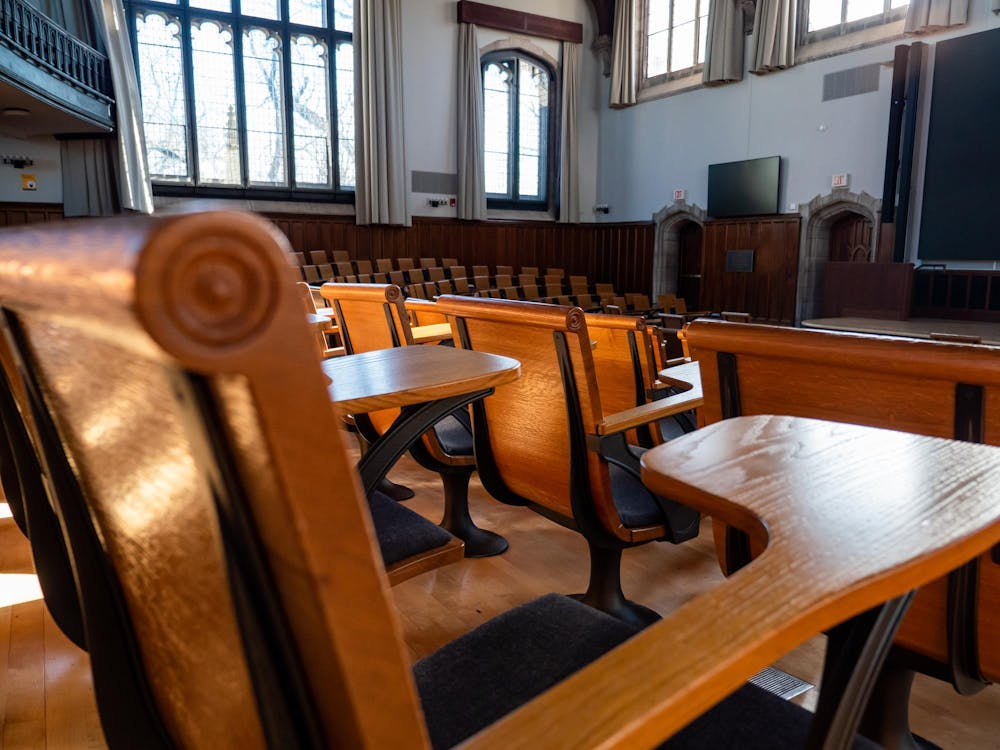I am not against the death penalty because I believe it is cruel, or that serial killers have a right to live, or because God says it is immoral. I am against it for a personal reason — a story a public defender related about a case on which she worked many years ago.
A man — lets call him Joe — had been convicted of raping and killing a woman in a small North Carolina town. The evidence indicated his guilt, and despite his protestations of innocence, the state sentenced Joe to death. Because this sentence came not long after the Supreme Court legalized capital punishment, and before executions became too routine to make the evening news, the local media gave near daily updates about Joe's final appeals and the protests at the prison gates.
Several days before the execution, after Joe had exhausted his appeals and the governor refused to commute his sentence, another man came forward saying he could not see an innocent man killed for crimes he did not commit, and confessed that he — not Joe — had committed the crimes Joe was convicted of. Had this man moved, or possessed a stonier heart, North Carolina would have murdered Joe in retribution for another man's crimes. And as recent evidence shows, Joe's case was not an isolated example.
Illinois Gov. George Ryan recently issued a moratorium on all executions in his state after new evidence proved the innocence of 13 men on Illinois' death row, nearly 10 percent of its total. If this 10 percent inaccuracy holds nationwide then America has murdered 60 innocent men since the Supreme Court legalized the death penalty in 1977. Ten percent is an unacceptable failure rate in classes, cars and computers. How can we accept it when we are deciding on human life?
In Los Angeles, the police department is investigating 70 of its officers for allegedly framing suspects, and the district attorney is petitioning for the reversal of more than 40 cases. Lawsuits by prisoners it allegedly framed could cost the city as much as $200 million. Though I still believe in OJ's guilt, our criminal justice system is fraught with injustice.
In 1996, Congress passed the Anti-Terrorism and Effective Death Penalty Act to limit the ability of convicts to file writs of habeas corpus, which allow prisoners to petition federal courts to review and overturn state court convictions. Such a writ prompted federal courts here in New Jersey to overturn the conviction of fighter Rubin "Hurricane" Carter after subsequent investigations revealed a conviction based on "an appeal to racism rather than reason, concealment rather than disclosure." One of Mr. Carter's lawyers, Leon Friedman, writes, "[this law] may make it virtually impossible for another unjustly convicted prisoner to find justice in the way Hurricane Carter did."
America's criminal justice system is rife with flaws. Even when neither prosecutors nor juries have malicious intent, people are convicted wrongly, largely because it costs a fortune — an estimated $250,000 — to defend effectively against a capital charge. Indigent defendants typically get poor legal help. To continue picking on Illinois, 33 court-assigned lawyers in capital cases were later disbarred or suspended.
Even if the Supreme Court eventually overturns this 1996 federal law, it seems inevitable the institution of capital punishment will murder people who are guilty of no crime except poverty, the wrong skin color or just bad luck. No criminal justice system can be perfect. From time to time, we will wrongly convict innocent people. But as long as an innocent person is locked in prison, new evidence or better lawyers can clear his name. After the state has murdered him, there is little it can do to make amends.

I am not against the death penalty because I think a serial murderer has some innate right to his life — I suspect that a person can forfeit that right through his actions. But given the realities of any criminal justice system, a country that allows capital punishment inevitably will murder some of her own innocent citizens. And state-sponsored murder is an evil incomparably worse than any benefits executions provide. Peter Harrell is from Atlanta, Ga. He can be reached at pharrell@princeton.edu.








